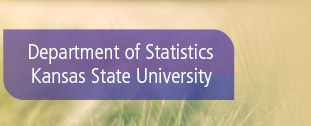Abstract
Estimation of unknown pesticide levels in experimental samples is an important aspect of many agricultural and environmental studies. Such measurements are often made utilizing a “standard” dose response curve. This methodology compares the biological response of a target organism at known dosages to the response of the same organism exposed to an unknown sample. These “bioassays” are typically more efficient in time and resources than direct chemical assessment of the unknown sample. The form and choice of the standard curve, however, is subjective and can influence the estimation of the unknown dose. Problems may also arise when incomplete or preliminary information is available for determining the standard curve. One means of reducing the effects of these problems is to use a more generalized nonparametric estimation technique. This work will outline an alternative bioassay method based on a Bayesian nonparametric standard curve estimation framework. Empirical results will be demonstrated using data from a trichorpyr herbicide dose-response trial on lettuce germination.
Creative Commons License

This work is licensed under a Creative Commons Attribution-Noncommercial-No Derivative Works 4.0 License.
Recommended Citation
Shafii, Bahman and Price, William J.
(2009).
"BAYESIAN NONPARAMETRIC BIOASSAY ESTIMATION,"
Conference on Applied Statistics in Agriculture.
https://doi.org/10.4148/2475-7772.1074
BAYESIAN NONPARAMETRIC BIOASSAY ESTIMATION
Estimation of unknown pesticide levels in experimental samples is an important aspect of many agricultural and environmental studies. Such measurements are often made utilizing a “standard” dose response curve. This methodology compares the biological response of a target organism at known dosages to the response of the same organism exposed to an unknown sample. These “bioassays” are typically more efficient in time and resources than direct chemical assessment of the unknown sample. The form and choice of the standard curve, however, is subjective and can influence the estimation of the unknown dose. Problems may also arise when incomplete or preliminary information is available for determining the standard curve. One means of reducing the effects of these problems is to use a more generalized nonparametric estimation technique. This work will outline an alternative bioassay method based on a Bayesian nonparametric standard curve estimation framework. Empirical results will be demonstrated using data from a trichorpyr herbicide dose-response trial on lettuce germination.

